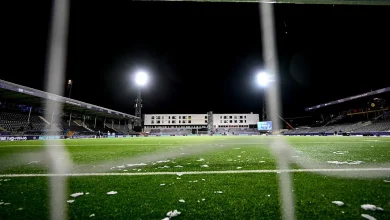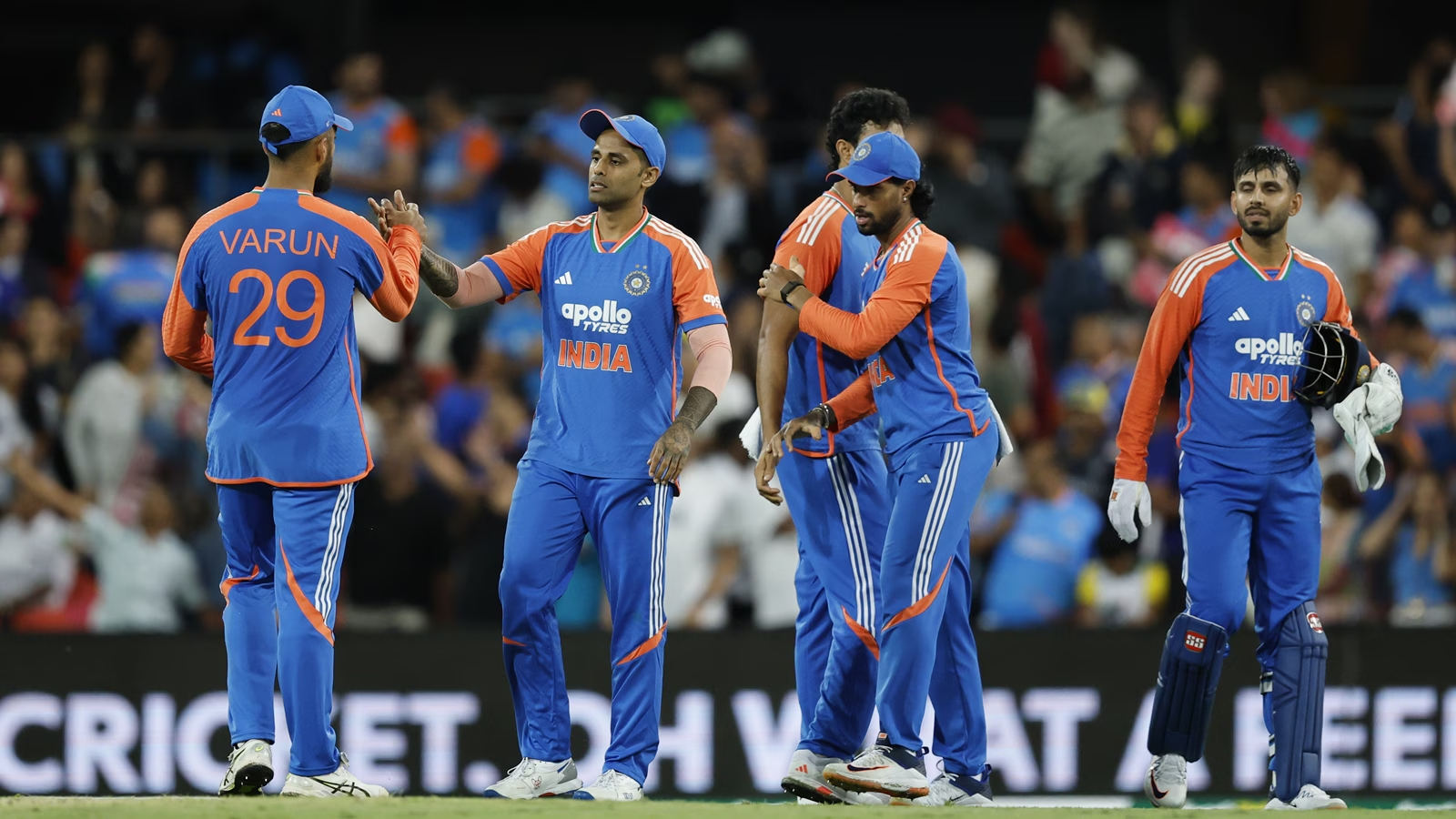Novak Djokovic’s Piers Morgan interview: Sinner, Alcaraz, the tennis GOAT debate and his career – The Athletic

Following Cristiano Ronaldo’s interview with Piers Morgan, the broadcaster sat down with 24-time Grand Slam champion Novak Djokovic, the greatest men’s tennis player of the modern era.
Djokovic, who at 38 is entering the latter stages of his career, discussed Jannik Sinner’s doping case, his own deportation from Australia after the country’s immigration minister revoked his visa in 2022, his status as the GOAT in tennis, and how he wants to be remembered.
The interview begins with Morgan apologising for his criticism of Djokovic at the time of his deportation from Australia, nearly four years ago. Djokovic accepted the apology and said he was never anti-vaccine but instead pro-freedom of choice.
On the tennis GOAT debate
Djokovic declined to label himself as the best of all time, veering away from comparing his numbers with Rafael Nadal and Roger Federer to focus on the difficulty of comparing tennis eras. “I’m not going to say whether I’m the greatest or not because it’s not my position to say that,” he said. “And I would say that would be very disrespectful to those who have paved the way for Nadal, Federer and all the others.
“It’s so hard to compare eras; our sport has gone through quite a transformation in the last 50 years.”
Morgan showed off some gear knowledge by mentioning rackets, before Djokovic added in balls, surfaces, entourages and changes in the intensity of preparation and the quality of the data and information players have available to them.
Djokovic named John McEnroe and Björn Borg among the legendary players to have paved the way for his generation. He also said he considers his former coach Boris Becker, a six-time Grand Slam champion, to be “part of my family.”
On the twilight of his career and Sinner and Alcaraz
Djokovic said at the U.S. Open that he no longer sees Grand Slams as the most realistic places to beat Carlos Alcaraz and Jannik Sinner, who have opened a gulf at the top of men’s tennis the past two years. He has also said he wants to play at the Los Angeles Olympic Games in 2028, describing himself as entering into a “transition” in which he seeks to maintain motivation while dealing with the “realities” of his physical condition.
“Being the dominant player for most of my career, for over 20 years, and now being dominated by Alcaraz and Sinner …”
Morgan cut in to ask just how humiliating that is. “It’s a natural progress and evolution in sport,” Djokovic said. “They’re great for our sport.”
Djokovic went on to say he didn’t want to watch the epic French Open final between Alcaraz and Sinner because when a tournament is over for him, he wants to switch off entirely. He deliberately took his family out for the day to avoid it, but they ended up watching anyway because it went longer than anyone expected and his wife and kids insisted. So he was torn between not wanting to look at the screen and, at first, becoming tactically engrossed and then full of admiration —a feeling he has felt in just “four or five matches” in his life.
“My best level now, their best level now — they’re better. That’s the reality,” Djokovic added.
Morgan then got Djokovic to talk about his physical condition, which he says is about getting to know his body and what it can achieve as he ages. Djokovic said that, to some extent, he still thinks he’s a “superman who can never injure himself or be weak,” though he acknowledged he’d “had a slap from reality the last couple of years.” That said, Djokovic still believes he will beat whoever is on the other side of the net.
Jannik Sinner and Carlos Alcaraz have tested Novak Djokovic’s limits in his late career. (Adam Pretty / Getty Images)
On not being a tennis player
After a segment discussing the differences in pressure in personal and private lives, during which Djokovic recalled his childhood in Belgrade during the Kosovo War, he said he did not enter the tennis court as a tennis player but instead as a person “who has to deal with all the other things that are happening in my private life that people don’t know about or shouldn’t know about.”
Morgan asked him what kind of circumstances had most affected his performance, good times or bad. Djokovic said adversity fuels him and has fueled him, especially in the early part of his career, but went on to say he can get “fed up” with drawing things from a negative emotion. Positivity is a more “constructive energy,” he said, then added that his realization that he wants to prioritize his family in his late career helped him shift his mindset in that direction.
“One of the greatest motivations is to have both of my children experience their daddy winning Grand Slams and being there. And I have been so blessed and fortunate to experience that multiple times now,” he said. He added that it would be a dream to play his son, Stefan, 11, in a competitive match, joking that he wouldn’t go easy on him and would “kick his beep.”
As for the peak of his career, Djokovic referred to the period from 2015 until the middle of 2016, when he won five out of the available six Grand Slams, reaching the final of the other. In the period from the start of 2015 until the end of the 2016 French Open, his record was 126-9. He doesn’t think any player in tennis history could have stemmed his period of domination and described feeling “empty” when his results took a major downturn in the second half of 2016.
On Sinner’s doping case
After Morgan set up a neat joke about Sinner and Alcaraz being so good they are robots, he asked Djokovic about whether top players get treated at a different level.
“That cloud will follow him as the cloud of Covid will follow me,” Djokovic said, referring to his deportation from Australia in 2022. He then launched into the issue that has dogged tennis since Sinner’s case: a sport that is demonstrably two-tiered in financing, court preference, match-time preference, practice schedules, sponsorship deals and so much more being assumed to be the same at the anti-doping level, even when cases are conducted according to the International Tennis Integrity Agency (ITIA) protocols.
“It’s just something that was so major. … Over time, it will fade, but I don’t think it will ever disappear,” Djokovic said. Morgan then asked if Djokovic believed Sinner, and he said he always came across very genuine when they were training at Riccardo Piatti’s academy in Italy.
“When this happened, I was shocked, honestly,” he said. “I do think that he didn’t do it on purpose, but the way the whole case was handled is so many red flags.”
Morgan ventured that if Sinner had been world No. 500, he would have been banned, which is entirely possible given the huge legal disparity in resources between a player of Sinner’s renown and someone lower in the world rankings, a disparity Djokovic encapsulated as “preferable treatment.” He also talked about a “lack of consistency” and the “convenience” of the three-month ban, meaning Sinner wouldn’t miss any of the Grand Slams.
Morgan tried to get a joke out of Djokovic relating to Sinner’s name, but he didn’t play along.
On his retirement
Morgan asked Djokovic how he would like to be remembered. He cited Nikola Pilić, the Croatian player and coach whom he has long called his “tennis father” and who died in September. Djokovic said Pilić’s funeral was the first one he had ever attended “because of his avoidance of the emotions and the sadness” that led him to miss the funeral of his great-grandfather.
“The human connections that he (Pilić) has left behind and established throughout his life and his career,” Djokovic said. “How he touched people’s hearts who were not just there at the funeral, but at the tennis club, post-funeral. … The way people talked about him, it was not about tennis and what he has achieved as a player, as a coach, who he has coached. It was about who he was as a person, how he conducted himself with people, how he changed the lives of young people or anybody who he has (been) coming close to. That’s how I want to be remembered.”





